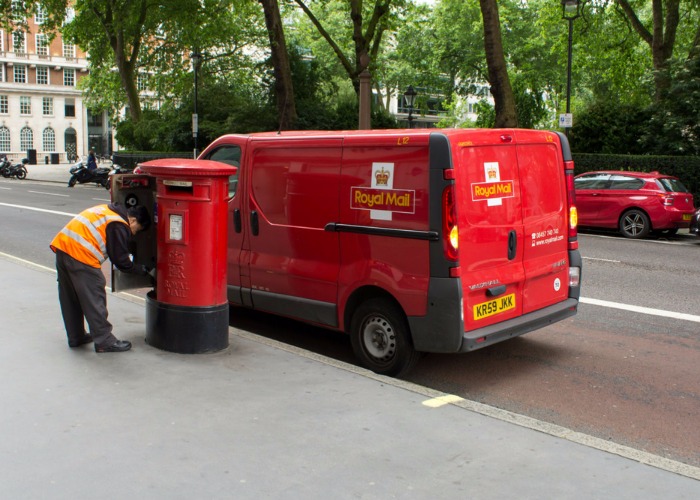Royal Mail is 'turning a blind eye' to scam letters targeting the elderly

Royal Mail is facing criticism for delivering scam letters to the elderly and vulnerable while looking the other way, despite repeated warnings.
Royal Mail is being accused of 'turning a blind eye' to scammers targeting the elderly.
An investigation by the Daily Mail reveals that older people and other vulnerable victims are losing money through letters sent by post, while Royal Mail makes money. The letters include messages from fake clairvoyants, prize draw scams and illegal adverts for unlicensed health remedies.
Some even persuade victims that their loved ones are trying to harm them and the company needs to send protection money. Victims are warned not to contact their families about the letters.
What’s worse is that these letters are eligible to be sent through bulk mail contracts. They have Royal Mail branding too, which fools victims into thinking that the contents of the letter are legitimate.
Elderly people in Britain lose up to an estimated £5.8 billion a year in postal scams. Dementia sufferers often fall victim too. However, cases often remain hidden as victims are too afraid or ashamed to ask for help.
The newspaper accuses the Royal Mail of refusing to crack down on the letters.
Sign up for a high interest current account today
How it works
First off, criminals buy a ‘suckers list’ of elderly people who have either fallen for scams or are likely to. Worryingly, they’re often from databases sold on by charities.
Scammers use these lists to produce scam letters to trick these vulnerable elderly people out of more money.
The criminals will employ a company, such as TRENDS in the Netherlands, to print millions of identical copies of the scam letter (except for the victim’s details), and seal them in envelopes.
The company then pays postal giants such as Ascendia, which doesn’t ask or check the content of the letters, to transport them to the UK.
Whistl takes it from there, sorting letters into postcode areas and putting them into the Royal Mail system. Whistl doesn’t check what’s in the letters either.
Finally, Royal Mail delivers the letters to the victims’ doors, and – you guessed it – the postal service doesn’t check the content of the letters.
Victims who fall for the fraud send cash and cheques back to the scammers’ post boxes which are looked after by TRENDS or the company that the criminals employ.
TRENDS sends the money to a payment processing firm like PacNet who processes the cheques and wires money back to the criminals.
All of the new victims are added to a new suckers list which is circulated by criminals worldwide, leaving elderly and vulnerable people susceptible to a whole slew of new scams.
What does Royal Mail have to say?
In response to the allegations, Royal Mail said:
“Royal Mail does not knowingly distribute mail from fraudsters. We do all we can to stop scam mail by working with a broad range of enforcement agencies. Since 2014, we have terminated contracts where companies have been proven to be operating scam mail. This has prevented an estimated 22 million items from reaching UK households and businesses.
“We have also contacted Whistl and other postal companies, which submit mail into our network. We have asked them to review any suspect contracts as a matter of urgency. We will follow up with them and confirm the action they have taken.”
Royal Mail adds that it has looked at the list of companies suspected of sending scam email in the investigation and has passed the list on to National Trading Standards.
It sent up a joint initiative with National Trading Standards in 2014, which helps terminate contracts with companies that send fraudulent mail and to help delivery staff identify suspicious items.
One of the problems the postal service faces is not being able to open post for privacy reasons.
Business minister Margot James summoned Royal Mail to parliament to demand urgent action over the scandal. She said an immediate investigation was needed to further explore the accusations.
However, there's evidence that hints that these practices have been going on for a while. Postal workers told the Daily Mail that they hated being made to deliver the scam letters, but were afraid of losing their jobs if they refused.
Sign up for a high interest current account today
What to do if you get scam mail
Scam post has many of the same red flags as scam emails, so be on the lookout for bad spelling or poor grammar in a letter claiming to be from a professional organisation.
If the post is unsolicited, that should be a clear warning sign that something is amiss. Similarly, if it’s a letter asking for money, treat it with suspicion, particularly if it asks for an upfront payment.
Dodgy competition and prize draw letters can be identified a bit more easily. Be wary of:
- Coats of Arms
- Seals
- Serial numbers
- Barcodes
- Watermarks
- Reproduced signatures
- Rubber stamps
If you think you’ve received something fraudulent through the post, fill out a Scam Mail Report over at Royal Mail and send it to Freepost Scam Mail.
Alternatively you can contact Royal Mail with your full name, address and telephone number by calling 03456 113 413 or by sending an email to scam.mail@royalmail.com.
Send along the examples of fraudulent post if you can.
Sign up for a high interest current account today
More devious scams to watch out for:
New Tesco scam targets your mobile
Comments
Be the first to comment
Do you want to comment on this article? You need to be signed in for this feature